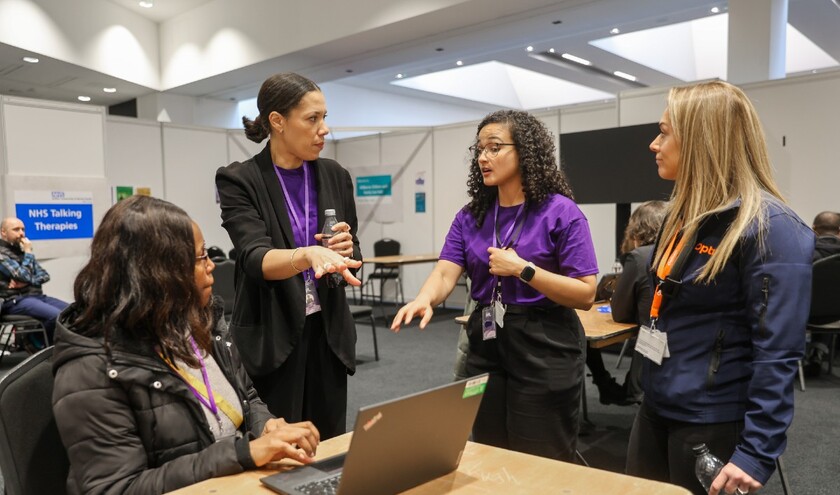For the first time, attendees of the NHS Providers' Annual Conference were able to experience an immersive national simulation of how neighbourhood working could work in practice.
Led by management consultancy PPL, the two-day event simulated two six-month cycles in which 100 people from multi-disciplinary teams developed healthcare pathways and interventions for 16 residents.
The volunteers were people with a range of lived experience who took on the roles of residents with a range of complex healthcare needs and who were exposed to the wider social determinants of health such as poor housing and unemployment.
During the first day of the simulation, the healthcare teams agreed that a focus on residents with frailty needs would be the best community prevention intervention to reduce A&E admissions.
PPL joint executive, Claire Kennedy, said: ‘There were two simulations running in parallel – a planning simulation which was a place-based board and a delivery simulation which involved colleagues working on the frontline with 16 residents who presented with a range of different mental and physical needs.
‘It wasn't all sunshine and roses. On the first evening, there were definitely some points where people were expressing some of the real challenges and how difficult it is to make that shift. One of the things we agreed collectively was to all go away overnight and think of one thing we wanted to bring into that second cycle to really change the experience and to test out doing things really differently. We were absolutely delighted with the shift that happened on the second day.'
One of the symbolic things that happened on the second day was that people removed their organisational lanyards to indicate a shift towards a one team mentality.
A point of contact was established for each patient to help them navigate through the system and there was a lot of co-location virtually and physically, in terms of joint visits.
Patients reported that while they were waiting for a GP appointment they had a lot of contact with other support services, including the voluntary and community services, which resulted that, in the end, they did not need the appointment.
One patient said: ‘In cycle two I was asked the questions that really mattered to me.'
The simulation resulted in a 25% reduction in outpatient appointments.
Digital platforms provided by Feedback Medical and partners Optum UK were an integral part of participants being able to communicate with each other and refer residents across services.
PPL senior advisor Sean Harriss, who has been working in local government since the 1990s and who took on the role of local authority chief executive during the simulation, said: ‘I think the most challenging thing was trying to find the opportunity for everybody to have their voice heard because there were so many people inevitably involved in both providing the context and the care.'
Dr Minal Bakhai, north west London GP, national director of primary care and community care transformation and improvement, and national director for the neighbourhood health implementation programme, said: ‘It has been intense but brilliant. Just the way we have worked across organisational boundaries. We have dissolved bureaucracy. There were no criteria, no referrals, no forms. We were just talking to each other.
‘We did joint visits. We did joint consultations. We had multi-disciplinary team meetings. We moved to "what matters to you" conversations and whole person care combing physical and mental health and thinking of all of the different aspects that impact people's lives, their health and wellbeing, and really putting patients, citizens, residents, communities at the heart of what we've been doing.
‘I think this can really drive a reduction in health inequity. It's a joy to work like this. Not only will we start to prevent ill health but we will start to create better health and better equity where people live.
‘This is the way we should be working. It dissolves all of the power imbalances in our system. It's a win-win-win. The simulation proves that we can do it.'



